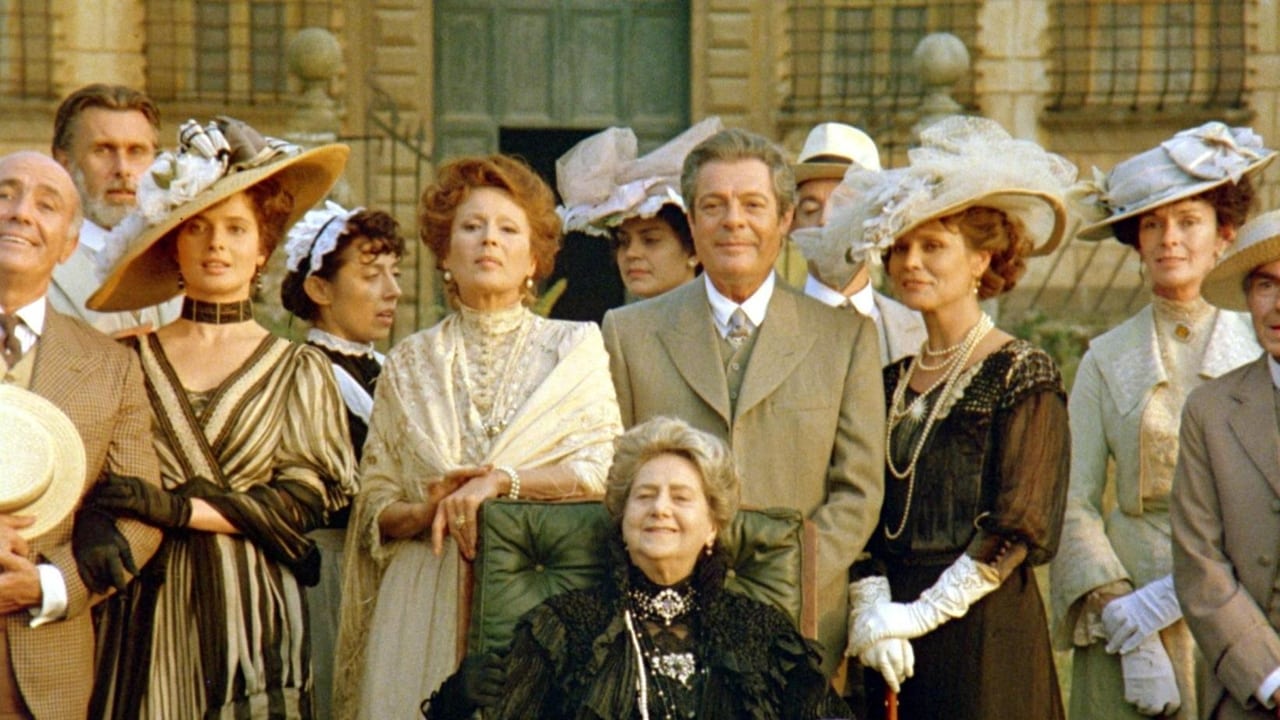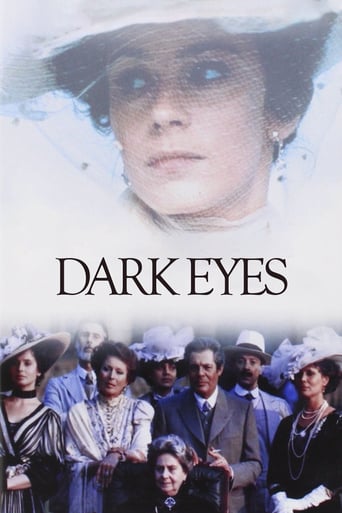WasAnnon
Slow pace in the most part of the movie.
Inclubabu
Plot so thin, it passes unnoticed.
Stephanie
There is, somehow, an interesting story here, as well as some good acting. There are also some good scenes
Sarita Rafferty
There are moments that feel comical, some horrific, and some downright inspiring but the tonal shifts hardly matter as the end results come to a film that's perfect for this time.
Armand
for its wise simplicity. for its touching beauty. and for the high Mkhalkov precision to create the details. a film with an impressive cast - Mastroianni is the first violin but not the one - and example of inspired manner to use the Tchekov spirit and the glamor of a century beginning. a film like a puzzle in which each image, performance or scene is charming like a kind of gem, delicate and illustration of art of a master. a special meeting between art of few great actors and an unique director. and the flavor of a Russia who becomes different in contact with Mastroianni - it is not the only meeting , Sunflower is another , but in this case, far by war or Sophia Loren, the story seems be a precious drink in a crystal glass.for me, one of films who, after its end, proofs than it represents one of movies who you search for without know than it exists.
Michael Neumann
A Russian/Italian co-production sounds like an uneasy marriage of mismatched temperaments, but 'Dark Eyes' is a remarkably cohesive mutual effort offering the best of both worlds: a wonderfully romantic story, a healthy love of laughter and high spirits, and a lingering air of Slavic melancholy. It's being sold as a showcase for the perennial charm of Marcello Mastroianni, but the film has more than just his performance to recommend it. The script, condensed from several tales by Anton Chekhov, has the elegant simplicity of a classic short story, following a charming but buffoonish husband in his pursuit of an attractive young Russian back to her native country, where he discovers a nation of people even crazier than he is. Some of the smaller roles have been drawn for the broadest effect, but under Nikita Mikhalkov's meticulous direction every character emerges as a full blooded human being, with Mastroianni himself offering a sensitive portrait of a man too in love with life to take it seriously. A nagging reservation: the final irony revealed in the epilogue adds one coincidence too many, and comes close to spoiling the already poignant mood. Just pretend it never happened.
adipocea
There's no really much you can say and analyze about this movie. It's not a movie by itself, it's a piece of art lost in the ocean of mundane cinema of the 20-th century. It's like the great literature, the great paintings of history, impregnated with a mystical and hard to define quality in it's texture. For me this is not simply a "movie", i say it again. Like Nostalghia or Andrei Rubliov of Tarkovsky , here the poetics transcends what we usually call cinema, or a film, because it gets a life on it's own, and becomes independent to critical observation. It's like a tiger in the Siberian forest, that you have to simply admire. A tiger is beautiful because it's a tiger, Oci Ciornie it's beautiful because it is Oci Ciornie. Something divine happened to Mihalkov and to the cast when thy made this piece of art. It was the greatest shame and scandal when the jury at Cannes awarded "Sous le Ciel de Satan" the Palme D'or, but who cares...Time is for the art what is for the wine. The good one gets better, the cheap one gets sour and becomes vinegar.
holdie
Based (loosely) on Chekhov's story "The Lady With The Little Dog," Oci Ciornie (Dark Eyes) features some of the most sumptuous photography of recent years. Set in Yalta, a sultry Black Sea spa for stylish Russian idlers, Dark eyes features a memorable tragic-comic performance by Marcello Mastroianni as Romano, foolish, gallant, ultimately trivial, and a superbly innocent, deeply moving performance by Yelena Safonova as the woman whom he utterly, shamefully fails. Mikhalkov's script departs from the Chekhov story in ways that some Chiekhov-loving viewers might balk at. But Chekhov's ending is perhaps too subtle and introspective for cinematic realization, and Mikhalkov's alternative, seems justified, if only as a vehicle for Matroianni's extraordinary performance.

